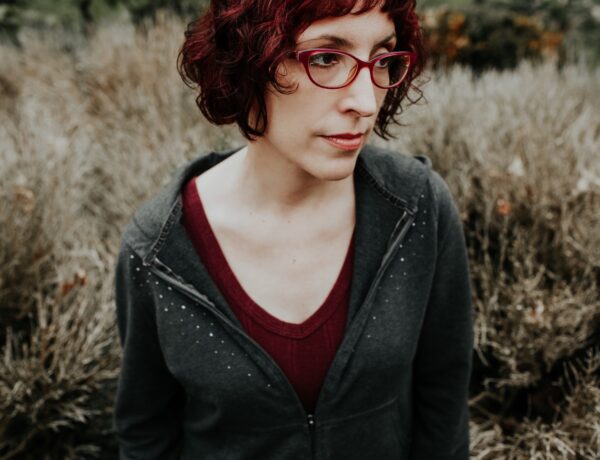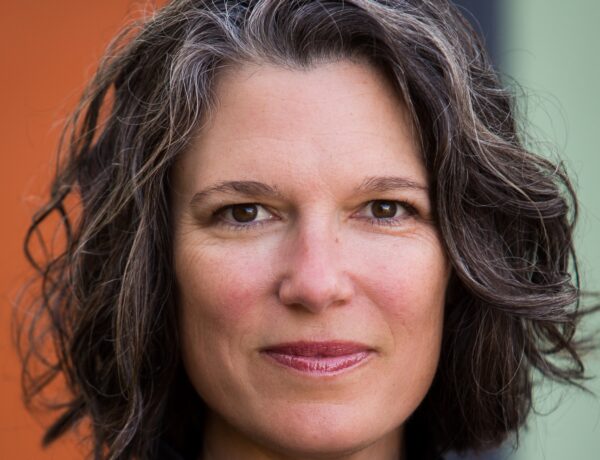Maddy Crowell is a freelance journalist based in New York City who has published work in several notable magazines and newspapers, including Harper’s, The New York Times, The Atlantic, The Point, and VQR, among others.
She has received support from organizations such as the Overseas Press Club, the Pulitzer Center on Crisis Reporting, and the Fund for Investigative Journalism. Her article “The Great Divide” was featured in Best American Travel Writing 2019 and she was the co-recipient of NYU’s Reporting Award in 2020.
Maddy is also a two-time Livingston Award finalist and her article “Invisible Kid” was a National Magazine Award finalist in 2022. She holds a M.A. in politics from Columbia University Graduate School of Journalism.
Each week, we publish a new daily writing routine from a famous author. Subscribe to our newsletter so you don’t miss out!
Hi Maddy! We’re delighted to have you as a guest on Famous Writing Routines. For our readers who may not be familiar with your work, could you please give us a brief introduction to yourself?
I’m a freelance journalist based in New York City. I focus mostly on longform magazine pieces – previously abroad; these days mostly from the US.
Can you speak to your experience of your work being featured in Best American Travel Writing 2019 and how it affected your career?
It came as a surprise! Mostly because neither my editor nor I submitted the piece for consideration. I don’t know if it affected my career in a tangible way, or if it did, I wasn’t aware of it, but I was grateful and honored to have the piece recognized.
You’ve received support from organizations such as the Overseas Press Club and the Pulitzer Center on Crisis Reporting over the years. How does that type of support help shape your work?
They are hugely helpful. And I don’t just mean financially, although obviously the funding has made a lot of stories that wouldn’t otherwise be possible, possible. Organizations like the Pulitzer Center and OPC basically give young journalists a chance in a very tough industry that doesn’t usually give young journalists a chance.
Can you describe your reporting and writing routine when working on a story? What does a typical day look like for you?
When I’m working on a magazine story I can never start writing until I’ve done all the reporting. Depending on my deadline, I try to draw out the reporting for a month or two, and then try to budget two to four weeks to write. I can’t start writing until I have the opening scene in my head, and a general sense of where I’m headed. Sometimes I get lucky and also have a clear ending, but not always.
I often do my best writing in the mornings, so I’ll try and do a good stretch of writing not long after I wake up, and then take a walk or workout, and then return to write some more. I find that I’m completely useless after 4 PM so that’s when I’ll schedule follow-up calls, or other work/admin/life stuff. When I finish a draft I force my husband, who is a very good editor, to read it before I let anyone else see it.
Do you struggle to stay focused while writing? You’re not alone! That’s why Famous Writing Routines recommends Freedom – the ultimate app and website blocker for Mac, Windows, Android, iOS, and Chrome. With over 2.5 million users, Freedom helps writers stay on task and avoid distractions. Get started for free today and reclaim your productivity!
How do you stay organized and stay on top of deadlines while working on multiple stories at the same time?
I have the luxury and curse of being unable to juggle too many stories at once. I try not to pitch or start new stories until I’m done with a draft of the current story I’m working on, and I try not to have more than two magazine assignments at a time. I’m a slow writer and often overreport my stories (if there is such a thing). Usually only about ten percent of my reporting actually makes it into the pieces that I write.
Can you discuss the challenges you’ve encountered while reporting in far-flung places and how you’ve overcome them?
I think the most difficult part of foreign reporting is also perhaps its greatest asset: you are an outsider. It’s difficult to get a particular community or source in a foreign country to trust you, and it’s even more difficult to get the tone right during the writing process. When you are working as a foreign correspondent you can’t just interview someone and move on: you need to realize how that person fits into their culture, their country, and that country’s larger history. I don’t know if you can ever overcome this entirely. But I try to write as sensitively as possible, to read as many books and talk to as many people as I can, before I start writing.
Do you have any advice you would give to aspiring freelance journalists on developing a successful and sustainable writing career?
It’s a terrible cliche, but I think the best advice – or at least, the advice I continually give myself — comes from Beckett: “Try again, fail again, fail better.” A rejection is not a “no” but an opportunity to fail better next time, and to keep trying. And perhaps on a more practical level, I’d say to any young journalist looking to break in: find the subject that obsesses you; find a subject that you yourself would want to read in a magazine.
What does your current writing workspace look like?
Prior to having a baby in September, I had a neat little desk in a shared coworking space exclusively for writers in Brooklyn, a thirty-minute walk from my house that was just bliss. It was quiet and full of other quiet writers. These days I usually work from home, most often at the desk next to my bed, but also sometimes on the couch, in bed, in a cafe, on the floor next to my daughter’s crib – wherever and whenever I can steal the hours.
Affiliate disclaimer: Some links on this website are affiliate links. We may earn a small commission if you make a purchase through these links, but only promote products we truly believe in. We disclose affiliate links and give honest reviews.



No Comments